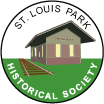The Kommers House was called the Blind Pig because of the illegal whisky served therein. It was run by Engelbert Kommers from 1890 to at least 1895. Kommers was born in Wisconsin to Prussian parents. He doesn’t show up at all anywhere in the 1900 Census but by 1903 he is living in Minneapolis. He died in 1913. Kommers was often in trouble with the law for selling liquor.
On January 6, 1892, Kommers plead guilty to selling liquor without a license and was sentenced to a $50, court costs, and 30 days in the county jail. “After paying his fine Kommers quietly walked out of the court room. His absence was not discovered for a few minutes, when a deputy sheriff started hastily in pursuit to enforce the 330 days’ part of the sentence. He gave himself up at the sheriff’s office. Application will be made to the governor for a pardon.”
1893
For the first time, the Village of St. Louis Park put the matter of allowing liquor licenses to a vote in 1893. These votes were held every March until national Prohibition was enacted in 1919. Before this first vote the Minneapolis Tribune printed an extensive report on the situation and the politics involved in the Park.
The fight against liquor began two years ago. It centered pretty largely in the prosecution of [Engelbert] Kommers, a German boarding house keeper, who was charged with keeping a blind pig in his hostelry…. President Hamilton, of the village council, says:
“He has been arrested several times and once was convicted and sentenced to 90 days in jail besides fined. He pleaded so hard, with tears in his eyes, if the court would be lenient he would quit the business, that Judge Lothren joined with County Attorney Thian in recommending a pardon, which was granted by Gov. Merriam.
“Subsequent to this conviction Kommers was convicted before a justice of the peace of St. Louis Park and fined $100 and the case was appealed to the district court, where it now awaits action. He was again arrested and tried twice, the jury failing to agree both times. The third trial the case was dismissed.”
Although there were plenty of dry candidates for Village office, only Mr. Kommers was willing to run on the wet ticket. He was really interested in being Village Council President but he knew the makeup of the council would have an effect on if liquor licenses were approved. When asked to describe his platform, he said:
I ain’t got anything against women and preachers, but I want the preachers to tend to their churches and the women to stay in their homes and let the men do the rest. I don’t believe we should be dictate to by a lot of women whether we should have saloons or not. I’d like to know which is the worse: Now my boarders go up town on Saturday and a lot of them bring bottles and jugs with them, so Sunday all day there are a lot of drunken men around. Now, if we had the whisky right in the house the men would not need to buy it by the bottle but they could get just what they wanted by the drink.
Kommers lost and the Village went dry that March. He would be arrested again in April.
There are numerous unknowns about the Kommers House. Here are some “facts” that may or may not be true.
- First of all, there is no information about where it was.
- In an 1893 article it is described as a boarding house with 50 residents. There is no boarding house with that many boarders in the 1900 Census.
- The Village band practiced in the hotel dining room.
- The last family to live in the Blind Pig was supposedly the Lockway family, but there’s no such family in the Census.
- It was purchased by Herbert Carleton, who had started a real estate business in 1901.
- The hotel was torn down in the 1920s to make way for the Dan Patch tracks.
- Carleton supposedly built his own home on the property, but that’s not right because Carleton’s home was on Dakota Ave. and was built in 1904.
